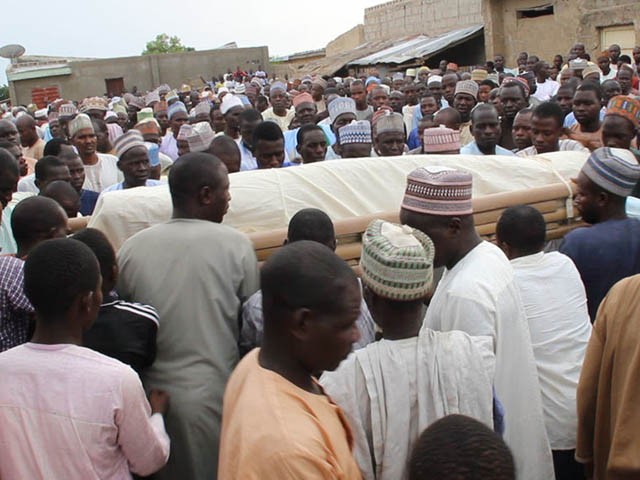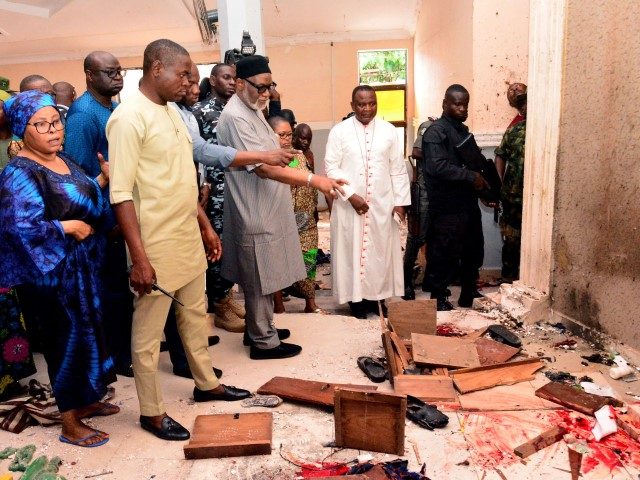Nigeria’s federal government said on Thursday it suspects members of the Islamic State West Africa Province (ISWAP) terror group were responsible for a massacre at a Catholic church in southern Nigeria on Sunday that killed 40 people, Reuters reported.
“We have been able to see the footprint of ISWAP in the horrendous attack in Owo and we are after them. Our security agencies are on their trail and we will bring them to justice,” Nigerian Interior Minister Ogbeni Rauf Aregbesola told reporters on June 9 in Nigeria’s national capital of Abuja.
An unknown number of armed men attacked worshippers of St. Francis Catholic Church in Owo, Ondo State, on June 5 as they attended a Sunday morning service. The gunmen additionally detonated an unspecified number of bombs in or near the church, according to Nigeria’s Vanguard newspaper
Ondo State Governor Arakunrin Akeredolu told Reuters on June 9 that “a total of 127 people had been affected by the attack in the church, of whom 40 had died, 61 were still in hospital and 26 had been discharged.”
Reuters had previously quoted local doctors as saying at least 50 people were killed during the incident. Those casualty figures were unofficial, however.
Owo is located in southwestern Nigeria’s Ondo State. The region typically witnesses fewer Islamic terror attacks than Nigeria’s northeast, where jihadists have led a violent Islamic insurgency for over a decade.

Men carry the bodies during a burial prayer held in Ngala, on December 15, 2019, of the 19 cattle herders that were gunned down by Boko Haram jihadists outside the Fuhe village, near Ngala, on December 14, 2019. (AUDU MARTE/AFP via Getty Images)
ISWAP is the formal name for Boko Haram, a jihadist terror group founded in northeastern Nigeria in 2009. Boko Haram renamed itself ISWAP in 2015 after pledging allegiance to Abu Bakr al-Baghdadi, who was then the leader of the Islamic State of Iraq and Syria (ISIS). Nigerian government officials claimed that a dissident branch of Boko Haram continued to exist after the group changed its name and allegiance to Islamic State. Abuja insisted on the existence of this alleged branch so that it could later claim to have vanquished the supposed offshoot and blame subsequent terror attacks on ISWAP, according to some observers. Nigerian President Muhammadu Buhari often cites this premise when attempting to claim credit for allegedly “defeating” Boko Haram, though he has yet to provide proof supporting the assertion.
ISWAP claimed responsibility for two separate terror attacks in Nigeria in April: a bombing in northeastern Tabara state (on April 22) and a fatal police station shootout in central Kogi state (on April 23).
“A total of 6,006 Christians in Nigeria were hacked to death from January 2021 to March 2022, a recent investigation has established, noting that the number has doubled in recent years,” the Associated for Catholic Information in Africa (ACI AFRICA) reported on April 23.
Citing an April 5 report by the International Society for Civil Liberties and Rule of Law (Intersociety), ACI AFRICA noted that “in three months (January to March 2022) alone, more than 900 Christians were killed by Boko Haram militants and armed Fulani herdsmen [jihadist terrorists].”

COMMENTS
Please let us know if you're having issues with commenting.